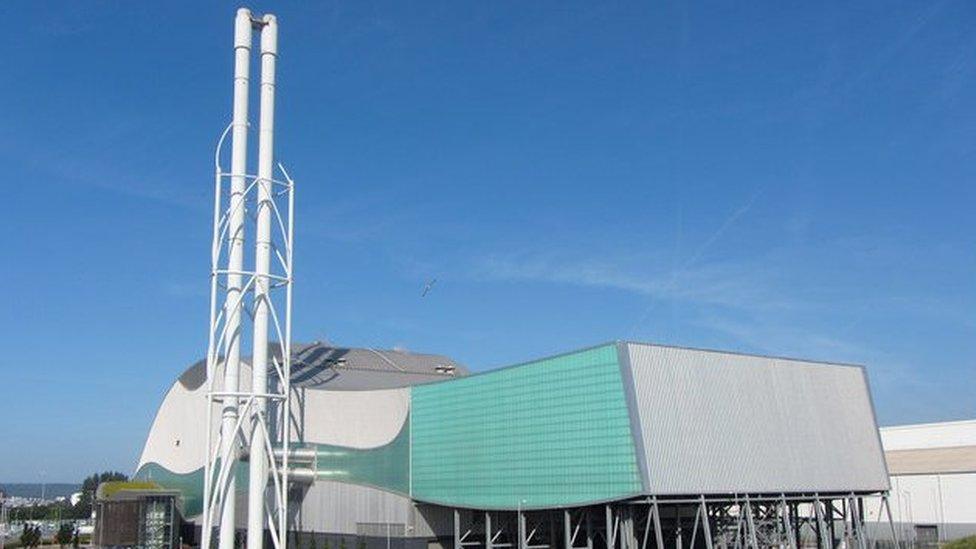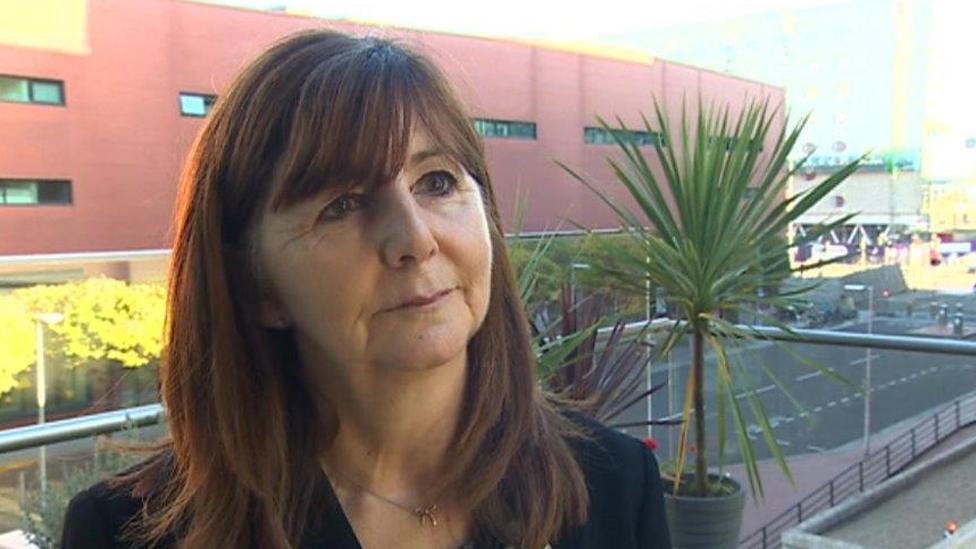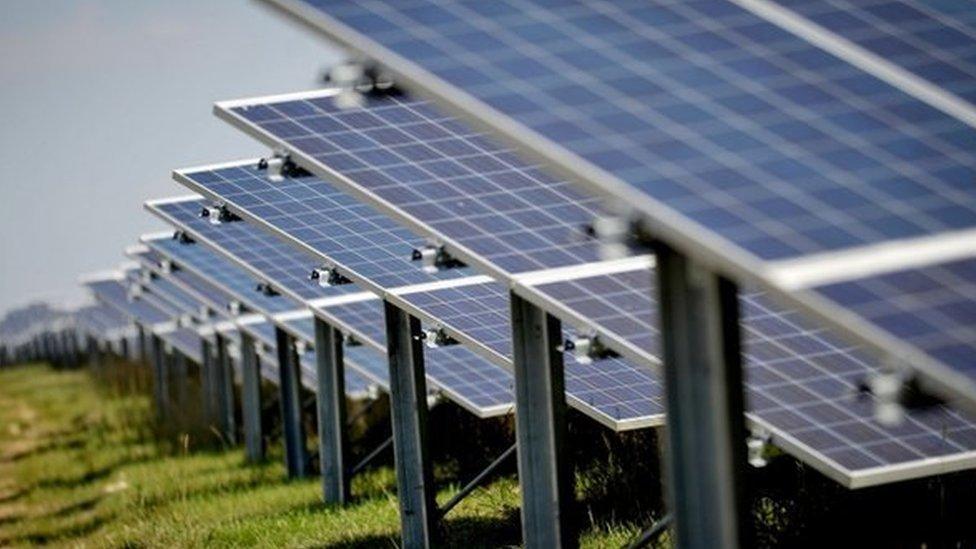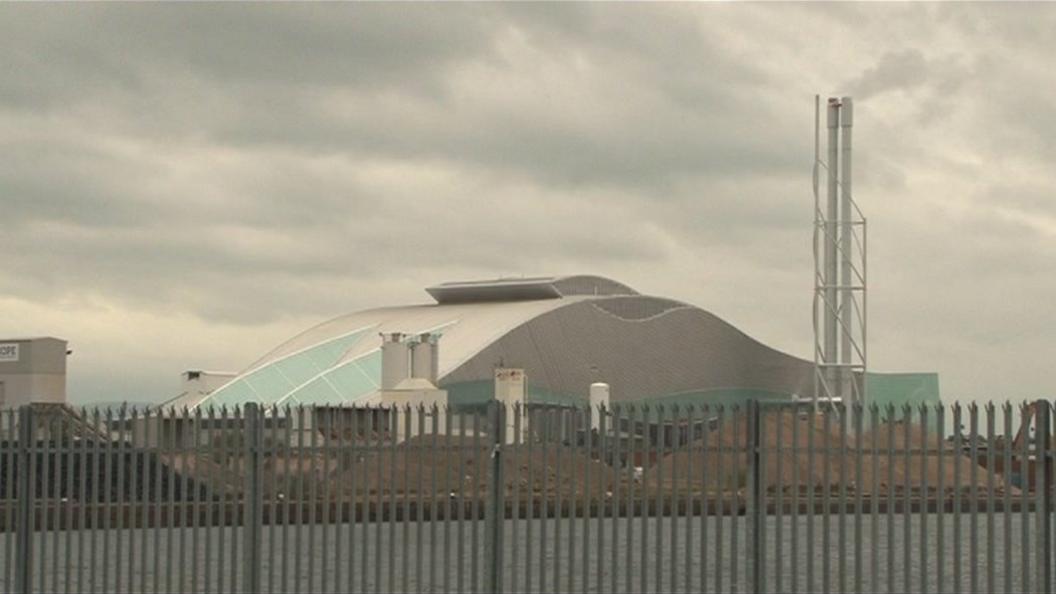Cardiff and Bridgend heat network projects get £16m cash boost
- Published

The Cardiff Heat Network Project will distribute waste heat generated by the Viridor incinerator through a network of pipes
Funding has been confirmed for two major projects to supply renewable heat to buildings in parts of south Wales.
Heat network projects in Cardiff and Bridgend will take excess heat produced at industrial sites to public buildings in the area in the initial phase.
The UK and Welsh governments will contribute a combined £15.2m in grants and loans towards the Cardiff project, which is led by the city council.
The Bridgend project will benefit from a £1.2m grant from the UK government.
Also known as district heating, the Cardiff heat network project will use underground pipes to transport waste heat from the Viridor Energy Recovery Facility to buildings in and around the Cardiff Bay area.
The incinerator processes about 350,000 tonnes of non-recyclable waste per year, producing enough electricity to power 68,448 homes.

The proposed pipe network for the heating project, updated in 2020

An £8.6m interest-free loan from the Welsh Government will provide more than half of the cash needed by Cardiff council to develop the first phase of the project, which is expected to be operational by 2022.
The aim - incentivised through the Welsh Government loan - is to expand the network into the centre of the city in future phases.
The Welsh Government said it was a "small but important step" towards its legal requirement to cut the emission of greenhouse gases by at least 80% by 2050.

Environment Minister Lesley Griffiths said it would cut bills and greenhouse gas emissions
"Heat networks such as these will help home and business owners to cut their energy bills - but it will also help us to meet our goal of cutting Wales' greenhouse gas emissions," said Welsh Environment Minister Lesley Griffiths.
Cardiff council said it was an "exciting opportunity" which could save 5,600 tonnes of carbon each year.
The 11 buildings in Cardiff which will be heated in this way during the first phase include County Hall, the Wales Millennium Centre, Cardiff and Vale College and the Senedd - Welsh Parliament.
In Bridgend, the funding will help develop a new system of distribution pipes taking excess heat from a combined heat and power plant and thermal storage facility.
This will supply heat to public buildings within the town centre and can connect to new, lower carbon heat sources in the future.
Initially the scheme will serve public sector buildings in the town centre, including the Bowls Hall, the Civic Centre offices, the Bridgend Life Centre and a new residential development.
Like the Cardiff project, businesses and households could be connected to the system in future phases.
The UK government funding is part of its Heat Networks Investment Project, a £320m fund to support the construction of heat networks across England and Wales.

Simon Hart said the projects would "help heat hundreds of homes and buildings"
Welsh Secretary Simon Hart said the UK government would "help heat hundreds of homes and buildings" using greener energy sources.
"It also marks another step forward for our ambitious Clean Growth Strategy and moves us closer to our target of net zero greenhouse gas emissions by 2050."
- Published24 February 2020

- Published20 September 2019

- Published27 August 2019

- Published29 November 2017

- Published26 September 2017

- Published6 January 2015
